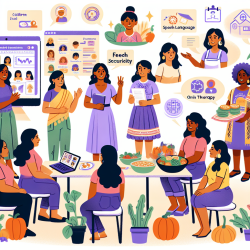Introduction
In the ever-evolving landscape of global health, the intersection of climate change and maternal health has emerged as a critical area of concern. As practitioners dedicated to improving health outcomes, understanding the nuances of how climate change impacts maternal health is essential. The recent research titled "Impact of Climate Change on Maternal Health Outcomes: An Evidence Gap Map Review" offers valuable insights and identifies significant gaps in existing knowledge.
The Importance of Evidence Gap Maps (EGMs)
Evidence Gap Maps (EGMs) serve as a systematic and visual representation of existing evidence on a specific topic. They are instrumental in guiding researchers, policymakers, and practitioners towards areas requiring further investigation. By categorizing studies based on criteria such as study design, outcomes, and quality, EGMs provide a comprehensive overview of the current research landscape.
Key Findings from the EGM
The EGM reviewed 133 studies, highlighting notable gaps in research distribution across regions. While North America and Asia have a significant number of studies, Africa and the Caribbean are underrepresented. This disparity underscores the need for more inclusive research efforts globally.
Extreme heat emerged as a prominent factor impacting maternal health, yet other climate-related factors like drought remain underexplored. Additionally, while preterm birth and maternal mortality have gained attention, malnutrition and food insecurity indicators require further investigation.
Implications for Practitioners
For practitioners, the findings of this EGM emphasize the importance of considering climate change as a significant factor in maternal health outcomes. Here are some actionable steps practitioners can take:
- Advocate for more inclusive research that addresses the vulnerabilities of marginalized populations.
- Integrate climate change considerations into maternal health programs and policies.
- Collaborate with urban planners to design heat-resilient environments that mitigate the impact of high temperatures on pregnant individuals.
- Support mental health programs for mothers and children affected by climate change.
Encouraging Further Research
The EGM highlights the need for more comprehensive research, particularly in regions with limited studies. Practitioners can play a pivotal role in advocating for research funding and collaboration to address these gaps. By fostering partnerships with academic institutions and research organizations, practitioners can contribute to a more equitable distribution of research efforts.
Conclusion
The intersection of climate change and maternal health presents complex challenges that require a concerted effort from researchers, practitioners, and policymakers. By leveraging the insights from the EGM, practitioners can drive impactful interventions and policies that enhance maternal health outcomes in the face of climate change.
To read the original research paper, please follow this link: Impact of climate change on maternal health outcomes: An evidence gap map review.










